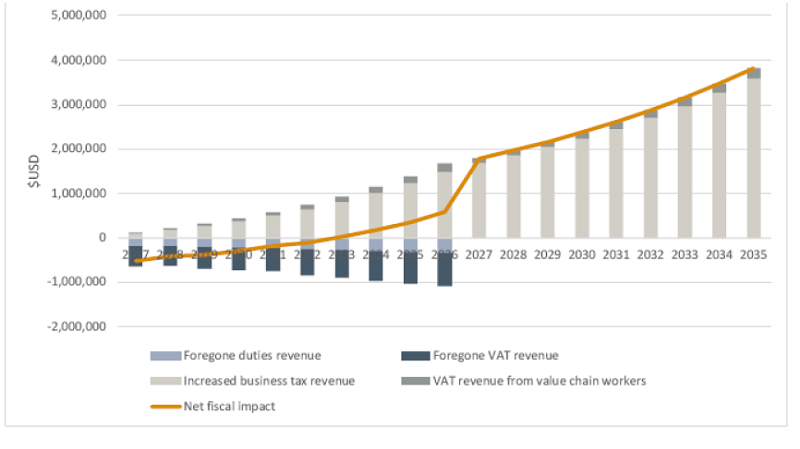On the 17th of January, various renewable energy stakeholders have met in Monrovia to validate and refine recommendations from the Liberia Policy and Business Environment Study for The Off-Grid Solar Lighting Sector.
 The Tony Blair Institute for Global Change as part of the Power Africa Senior Advisory Group Programme had collaborated with RREA and interviewed various business people to identify market barriers and recommends actions to overcome them.
The Tony Blair Institute for Global Change as part of the Power Africa Senior Advisory Group Programme had collaborated with RREA and interviewed various business people to identify market barriers and recommends actions to overcome them.
Energy access is crucial for economic development, and off-grid markets in Liberia faces various challenges. Relevant market -barriers for off-grid solar businesses include capacity constraints, access to finance, starting or expanding a business, importation and taxation, lack of quality standards, low awareness. After identifying these obstacles, the study, then recommends improving the off-grid energy sector by improving quality standards, awareness, acceptability, affordability, to establish a duty waiver and strengthen stakeholder coordination.
In the validation workshop, stakeholders discussed these identified barriers and recommendations, facilitated by Dr. Kandeh Yumkella, who has worked at the UN for Renewable Energy, is member of parliament in Sierra Leone, and had just returned from the Assembly of the International Renewable Energy Agency (IRENA) in Abu Dhabi. In small groups, the workshop participants then focused on outlining the way how to implement the recommendations in Liberia.
To ensure quality standards, Liberia could work with ECREEE and ROGEP to develop standards that work in Liberia, in line with common international and regional standards (ISO/ECREEE). This process has already started in the Division of Standard at the Ministry of Commerce and Industry. To facilitate import and reduce prices of high quality products, Lighting Global suppliers could be listed and get tax waiver, LEAP could establish a group buying scheme.
To improve awareness and acceptability, various activities could be combined. RREA could lead a national awareness campaign on Renewable energy and energy efficiency. All stakeholders agreed to collaborate towards joining efforts to set up a Renewable Energy Day in April 2019. The private sector will lead, direct sales outreaches, possibly supported by their association LEAP. The renewables-liberia.info platform and associated social media can be used to create awareness and facilitate marketing. RREA could help to establish certified repair centers across the country in partnership with international suppliers, so that spare parts are available and products can be repaired after the warranty period expired.
To improve affordability, a duty waiver for solar products is crucial, which has already been implemented in various other countries. Since energy is important for all sectors and the economy, waiving duties for solar products can lead to an overall increase in income over time, because the income lost due to the not collected duties can be more than compensated by the growth in the solar energy value chain. In Mozambique, a combined initiative between government, universities, the private sector, and EnDev Mozambique led to a duty-waiver study to convince the government. Such a study is also needed for Liberia. An inter-ministerial committee could forward the political discussion in Liberia, including EPA, Ministries of Education, Agriculture, Mines and Energy, Legislature, Public works, Commerce, Gender, Finance and Health. Competition will also help to facilitate access and reduce prices. Since Liberia is a small country, regionalization might be an option, e.g. combining Liberia and Sierra Leone. A regional warehouse could be established.

To improve stakeholder coordination, RREA could delegate some responsibilities and focus on leading, coordinating and providing oversight of the sector. The stakeholders that need to be coordinated include several national and local government entities, especially LEC, LERC, MME, a diverse private sector, various NGOs and development partners, some higher education institutions, technical and administrative experts (e.g., for tendering), financial institutions and media. All could share their information on the renewables-liberia.info platform. Coordination meetings such as the Rural Energy Working group (REWG) and the Integrated Forum for Renewable Energy (IFREL) could be complemented by a REWG-subcommittee for solar energy.
In his closing remarks for the validation workshop, Dr. Kandeh Yumkella brought up a very important additional topic: 3 billion have no access to clean cooking, 4 million people prematurely die, 60 to 80% of them are women and children, huge deforestation with devastating effects for world’s climate. While solar electrification has moved forward in the last year, efforts towards clean cooking has not moved at all and needs more efforts. This area of renewable energy efforts should receive more attention.
To grow the off-grid solar energy markets, stakeholders need to continue to collaborate towards overcoming barriers and facilitating access to sustainable energy products and services. The study that was presented and that is available here, is to be a living document, participants’ input at the validation workshop will be incorporated. In addition, everyone is welcome to further contribute (e.g. by emailing feedback and suggestions to This email address is being protected from spambots. You need JavaScript enabled to view it. <mailto:This email address is being protected from spambots. You need JavaScript enabled to view it.>) and outline important aspects, good ideas and any crucial nitty-gritty details of how to move forward with Liberian off-grid energy.
Read the full study here.